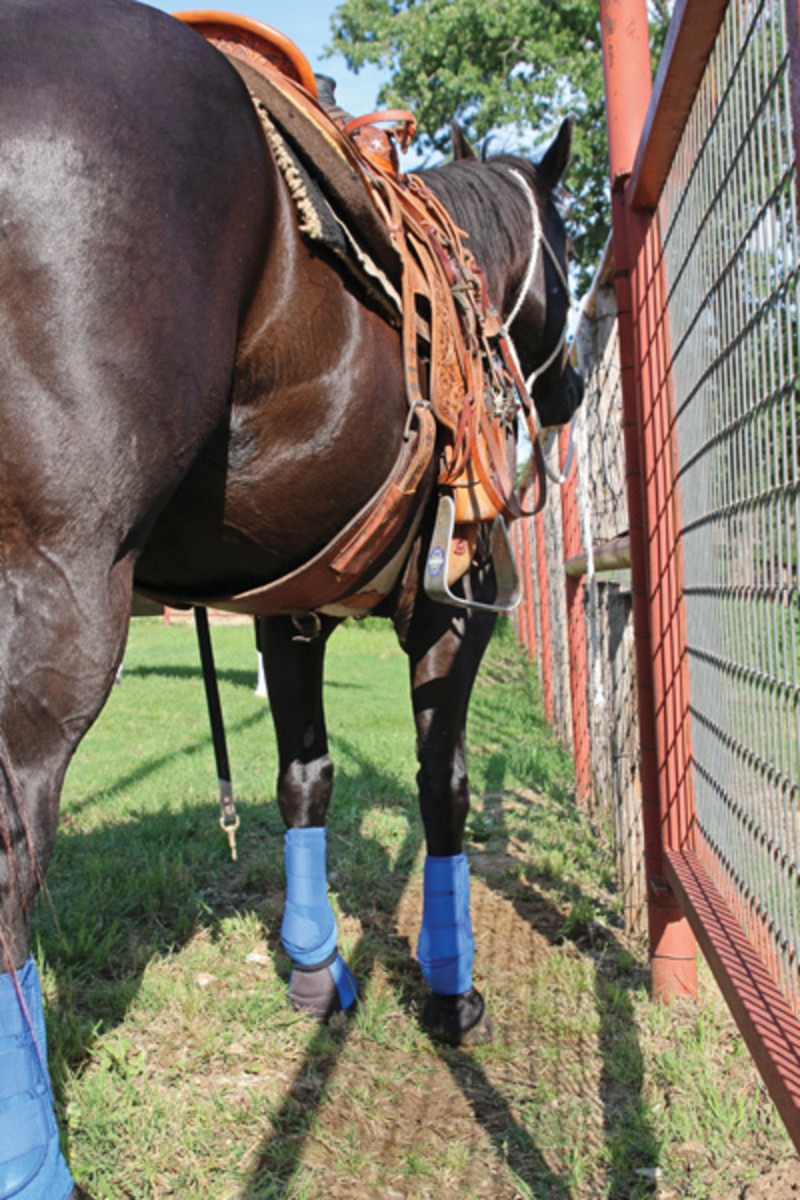Soundness exam
A spring vet check is a good idea, especially if you live in a colder climate where weather can keep you from maintaining your horse’s condition.
“You don’t want to start out with your horse hurting,” Colorado’s Joe Stricklin, DVM, said. “Whether they slipped on the ice in the winter, or you got behind on their shoeing or trimming, they can get sore walking around on bad feet all winter. You don’t want to start out the season with your horse sore. You don’t want the problems compounding where it’s harder to take care of.”

Emergency Kit
Your vet has gotten his or her fair share of emergency calls from customers stranded in the middle of nowhere with a sick or injured horse, and he or she knows what you need to have on hand to get your horse to the nearest vet in the best condition possible.
“I would encourage each team roper to go to their vet and get an emergency kit,” Texas’ Josh Harvey, DVM, said. “Guys get on the road and they have a horse colicking or cut, and you need to have enough of the essential medications and bandages to get to a vet.”
Fit Up
Team ropers are competing for more money than ever every single weekend, and these days it’s tough to compete on an overweight horse pulled straight out of the pasture.
“Getting them in peak physical fitness is so important,” Dr. Harvey said. “Avoid the tight circles—do lots of long trotting and loping big circles. Especially with these good older horses, you don’t want to be counter-productive by your conditioning. Don’t make them do something that’s hard for them—save that for the arena.” SWR










